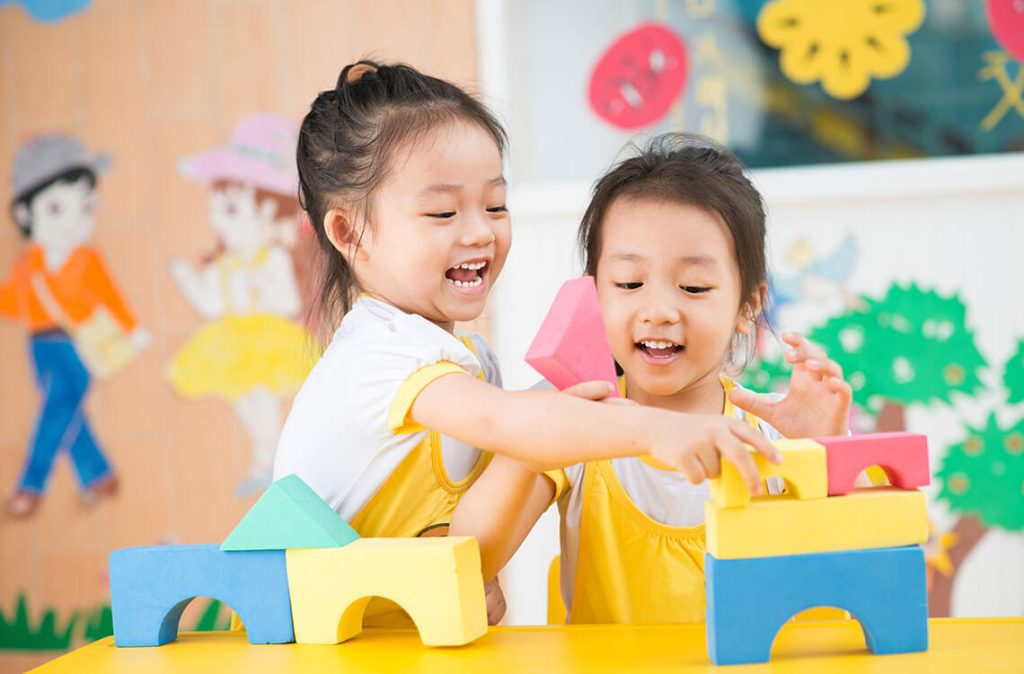Toys are not just for fun; they foster imagination, dexterity, and cognitive prowess.
Whether they’re traditional ones like blocks and dolls, or more sophisticated and complex ones like Legos and electronic devices, toys open doors for children to learn in a way that is most conducive to their young, hungry brains.
But not all toys are created equal. Some focus on intellectual ability, while others promote creativity. So it’s important for parents to know about the purpose and function of different toys to help them make the most informed decisions when it comes to
Play has always been an essential aspect of a child’s development. When combined with educational toys, it becomes a powerful tool for learning. Toddlers, in particular, thrive on interactive experiences that engage their senses, promote movement, and encourage creativity.
Here are 6 toys and what they can do for your child.
6 Toys and their Benefits for Children’s Learning
Sensory Toys
Sensory toys are designed to stimulate a child’s senses, including touch, sight, sound, and sometimes even smell.
These toys provide a rich sensory experience that helps toddlers develop their cognitive and motor skills. Examples of sensory toys include textured balls, sensory bins filled with materials like sand or rice, and musical instruments.
By engaging with these toys, toddlers can enhance their sensory perception, fine motor skills, and cognitive abilities, all while having fun.
For neurodivergent children, sensory toys are actually an important coping tool to help calm or stimulate them when needed.
Movement Toys
Toddlers are bundles of energy, and movement toys are a fantastic way to channel that energy while promoting physical development.
Toys such as ride-on cars, tricycles, and bouncing balls encourage gross motor skills, balance, coordination, and spatial awareness.
These toys provide opportunities for toddlers to strengthen their muscles, develop their sense of balance, and improve their overall physical abilities. Smaller moving toys like toy trains, toy cars, tops also help with fine motor control.
Construction Toys
Construction toys, such as building blocks, magnetic tiles, and interlocking bricks, offer endless possibilities for creative play and cognitive development.
They allow toddlers to experiment, problem-solve, and develop their spatial awareness and hand-eye coordination. As they build structures, children learn concepts like cause and effect, balance, and the basics of engineering.
Construction toys also promote imaginative thinking and encourage social interactions when children collaborate and play together.
Apps & Electronic Toys
In the digital age, there is a plethora of educational apps and electronic toys designed specifically for toddlers. These interactive tools can be valuable in introducing early literacy, numeracy, and problem-solving skills.
Educational apps often incorporate engaging visuals, sounds, and interactive elements that capture a child’s attention and make learning enjoyable.
Electronic toys, such as tablets or interactive books, can enhance language development, fine motor skills, and cognitive abilities.
In some ways, many parents prefer smart phones and educational apps and games for their kids because it’s so versatile, cheap and won’t contribute to household clutter.
However, it is important to ensure that screen time is balanced with other types of play and adult interaction.
Open-ended Toys
Open-ended toys are those that can be used in a variety of ways and encourage imaginative play. Examples include dolls, play kitchens, toy animals and many more.
These toys foster creativity, language development, social skills, and emotional expression. When children engage in pretend play, they practice problem-solving, negotiate roles, and develop empathy.
Open-ended toys also allow toddlers to recreate real-life scenarios, helping them make sense of the world around them.
Storytelling is such an important milestone for toddlers and open-ended toys like dolls can definitely help them hone that ability.
Puzzles and Games
We all remember the first time we got our hands on a jigsaw puzzle set. Puzzles and games offer a host of cognitive benefits for toddlers.
Simple jigsaw puzzles, shape-sorters, and memory games improve problem-solving skills, hand-eye coordination, and spatial awareness. They also promote patience, concentration, and logical thinking.
Playing games with others, such as matching games or board games, encourages social interaction, turn-taking, and cooperation.
Toys for All
Toys play a vital role in a toddler’s growth and development, and educational toys that combine learning with fun can have a profound impact on their cognitive, physical, and social-emotional development.
Sensory toys, movement toys, construction toys, apps and electronic toys, open-ended toys, and puzzles and games all offer unique benefits in nurturing various skills.
By providing toddlers with a diverse range of educational toys, parents and caregivers can create an enriching environment that supports their child’s natural curiosity, creativity, and love for learning for their entire childhood.
For more insightful stories and fun recipes, stay tuned to Motherhood Story!
